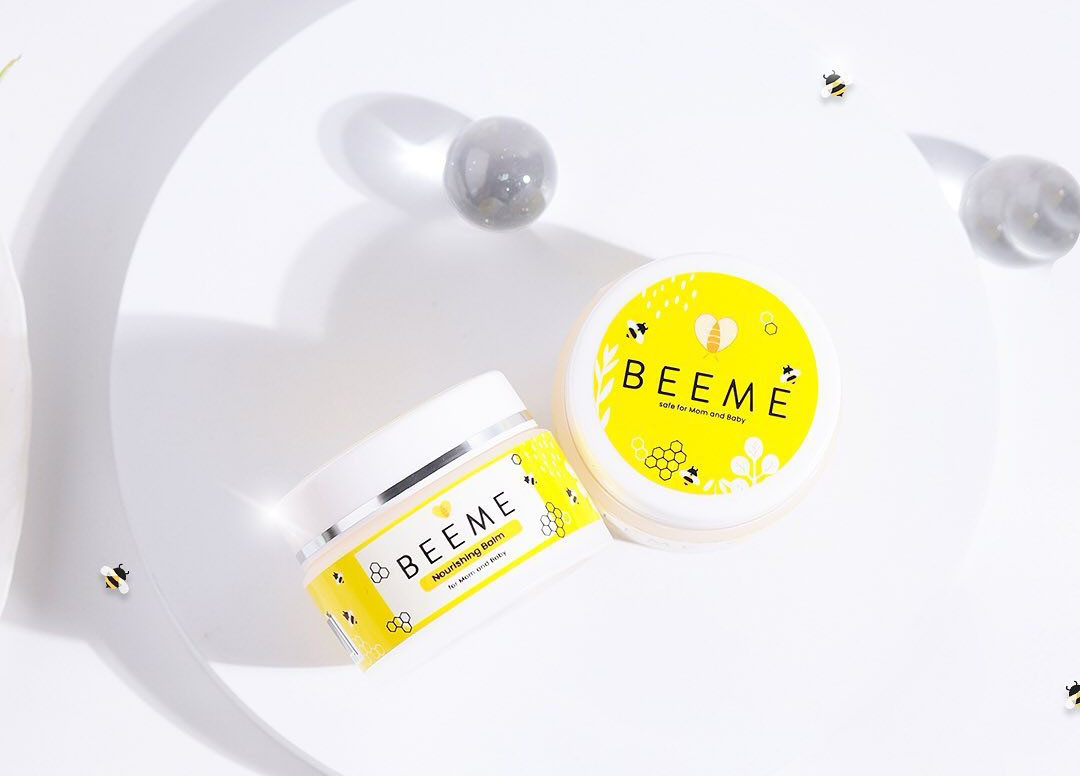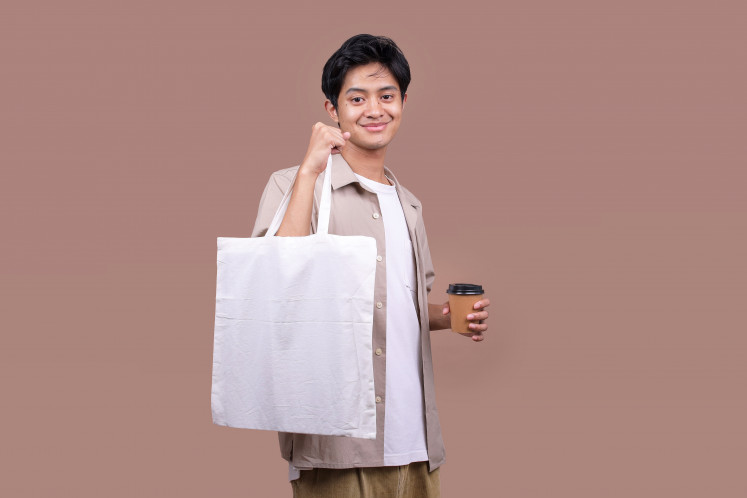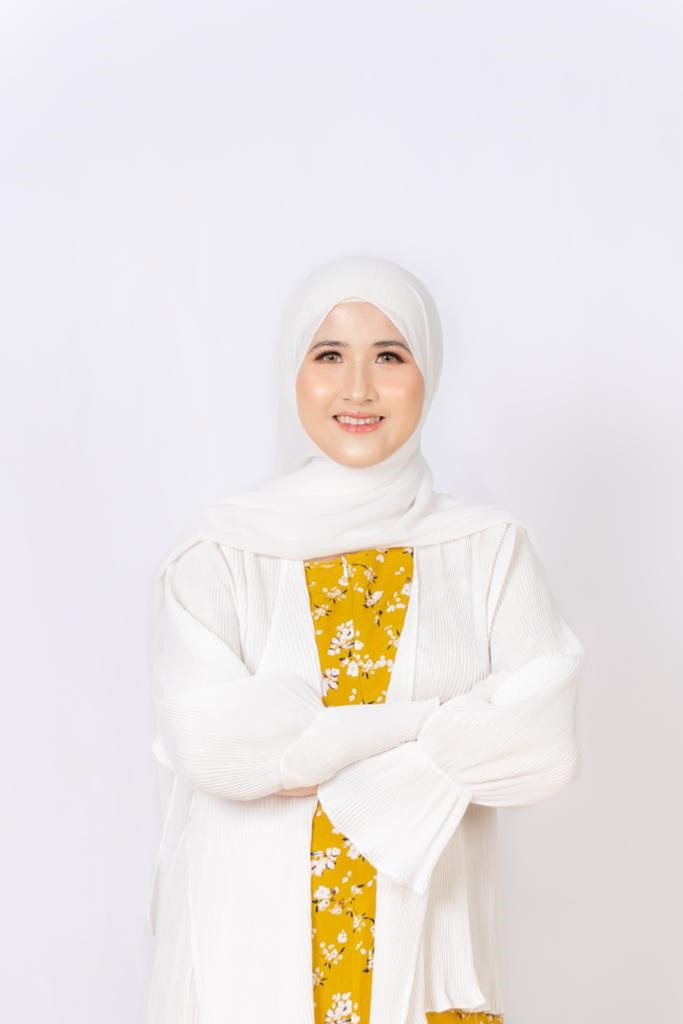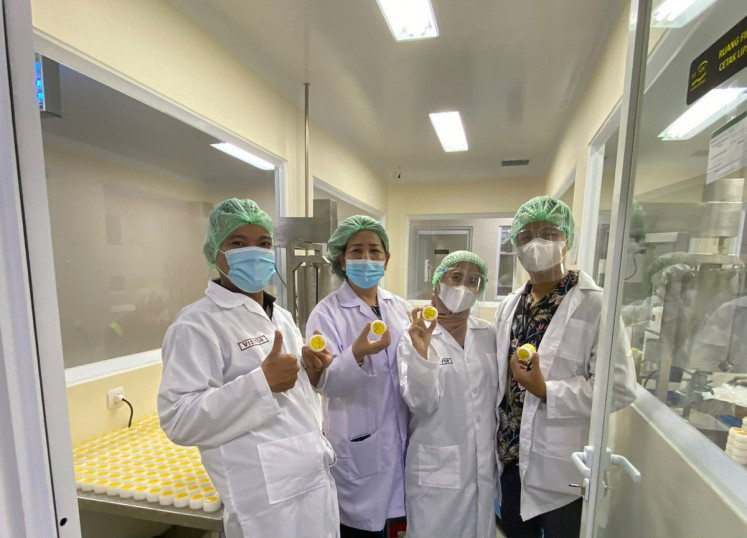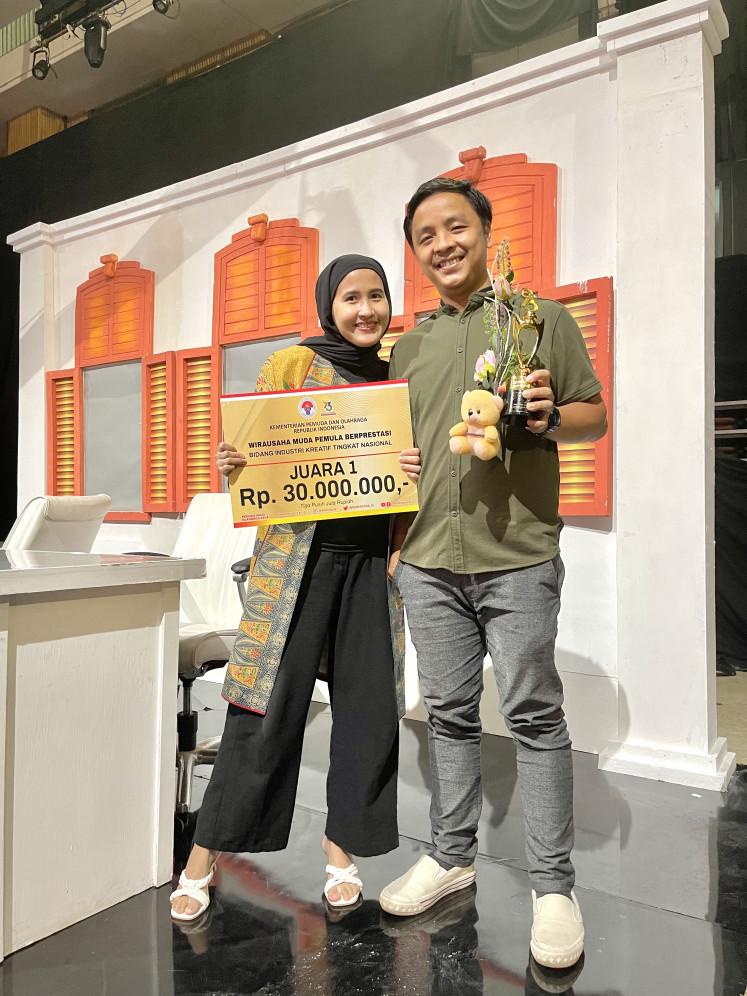Popular Reads
Top Results
Can't find what you're looking for?
View all search resultsPopular Reads
Top Results
Can't find what you're looking for?
View all search resultsMind your beeswax: How a small skincare business got moms buzzing with excitement
Change text size
Gift Premium Articles
to Anyone
S
tarted with a kitchen pot and beeswax sourced from local farms in Lampung, Bee Me now has a national presence with its au naturel honey-based mother and kids skincare products.
Nurfadila, a 31-year-old housewife in Banten, struggled with acne during her pregnancy last year.
"I had acne all over, not only on my face but also on my back and my neck," she said. "One day, I saw a post by [Instagram influencer] Dwihanda reviewing a brand for mothers and babies named Bee Me. I tried it, and it worked for me."
Nurfadila is only one of Bee Me's many users. The brand, known for its beeswax-based moisturizer, was the brainchild of a mother of three, Sheyla Taradia Habib.
Often called Shey, the 29-year-old entrepreneur has no pharmacy or dermatology background. Shey talked to The Jakarta Post about how Bee Me eventually came to be.
Can you tell us how you started the journey of Bee Me?
I was a fresh graduate with a bachelor of humanities in English literature degree from the University of Indonesia in 2014. It was my dream to become an entrepreneur like Sandiaga Uno and Bob Sadino. However, it takes a lot of effort to be one.
Anyway, I thought that a business needed capital, so I got a job. My first job was as a sales marketer at an oil company in Jakarta. I only worked for two months because my parents wanted me to return to Bandar Lampung.
So, you returned to your hometown and started your business there?
Yes. I eventually went home and started pursuing my master's degree at the University of Bandar Lampung, majoring in management. Meanwhile, I stayed true to my entrepreneurial passion by selling various things.
I tried to do several businesses because I thought they had potential, but I didn’t think of ways to develop them. I joined an entrepreneurship community called Yukbisnis and gained a lot of new business knowledge. It's also where I found my soulmate, Iqbal, who is now my husband.
Did you team up with Iqbal afterward?
No. Iqbal ran his own cafe and restaurant. I focused on my clothing business. However, fashion businesses come with deadstock problems. Eventually, Iqbal asked me to team up, so I joined his cafe’s marketing team. For the next three years, we focused on digital branding.
How did a cafe business and clothing business lead to a skincare brand?
The Bee Me business was born unintentionally. I couldn't help at the cafe during my second pregnancy, but I couldn't sit still. I saw videos on YouTube about how to make homemade moisturizing masks. Initially, I made it for my own use. It cost me around Rp 180,000 [$12.51] to buy the ingredients of a natural moisturizer. I shared my work on Instagram, and a lot of friends asked me to sell it. I thought it would be fun to open a preorder system and sell my product for Rp 45,000 [$3.13] apiece. I unexpectedly had around 100 orders.
I started working with honey farmers in the Tanggamus area, Lampung. But back then, I didn't understand that skincare had to have a license from the BPOM [Food and Drug Monitoring Agency] and this business might be banned. Amid the confusion, my then-business partner had to stop working because she was pregnant.
I remember it clearly: It was June 2019. I felt so hopeless. Out of nowhere, my friend, who is a medical doctor, called and said: "Shey, your skincare doesn't have a BPOM license, right? Bring your formulation to a maklon [manufacturer], and they will help you with the registration, manufacturing and all."
Future plans: With her company's Food and Drug Monitoring Agency (BPOM) license and trademark registered, Shey is now more confident and plans to continue to expand her product range. (Courtesy of Sheyla Taradia Habib) (Personal Collection/Courtesy of Sheyla Taradia Habib)Did teaming up with a manufacturer help speed up your business?
Initially, I still used the formulation from YouTube, but we didn't have active substances, so the main ingredients were only beeswax and natural oil. The experts at the manufacturer helped reformulate our product to make it softer and last longer. We went on to create some samples until I was finally satisfied with the result.
Our BPOM license was issued not long after, so we could finally expand our distribution. We started using the Bee Me brand because the product was derived from beeswax. We made cuter packaging, but we had to increase our price to Rp 80,000.
We also made beeswax-based soap and sunscreen. At first, we used paraben for our sunscreen, which is actually harmless if mixed in properly with the right amount. However, moms usually avoid paraben, so we stopped using it in our products.
Bee Me was initially a general skincare brand. What made you change direction to focus on moms and children?
Because there is already an abundance of brands in the local skincare market. In the past, I just sold my product to anyone without any particular target. Then, we looked at the data. We found that the customers who made repeat orders were mothers who also bought them for their children, so we decided to refocus. In 2020, we started our moms and babies campaign and managed to focus on that niche after a year.
The brand had a strong 2021. You won several competitions with Bee Me last year. Can you tell us about those?
My friend encouraged me to register for the Youth and Sports Ministry's high-achieving young entrepreneur competition, so we tried to submit our business proposal for the creative industry category. I didn't think I would win first place.
What makes us stand out is that we have a niche but robust market segment and empower the segment at the same time. Almost 98 percent of our team are housewives. We empower them with classes and business mentoring.
As for the Industry Ministry, I signed up for a cosmetic start-up competition, so my opponents were all cosmetics [brands]. I also had doubts because everyone had such cool products made of truly local and natural ingredients. However, I saw that they paid little attention to marketing and branding strategies, so I highlighted mine.
I explained to the jury that my knowledge gap enables me to absorb more, so I see the gap as an opportunity. It means I can also be aggregators for others' products, so why don't we collaborate? Maybe that's where the jury decided that Bee Me has an added value, so we secured a runner-up position.
Acknowledgement: Shey thinks Bee Me's marketing strategy is one of its best features. (Courtesy of Sheyla Taradia Habib) (Personal Collection/Courtesy of Sheyla Taradia Habib)In your opinion, what made Bee Me thrive despite the pandemic?
Maybe it's because we kept expanding distribution and branding with advertisements, endorsements and new social media approaches. Like, when we see opportunities to sell with TikTok, we immediately adapted and used TikTok for Bee Me marketing activities.
We're also keen on endorsing influencers that fit our segment. We deploy specific formulas for particular campaigns. For big campaigns, for instance, we use nano, micro and mega-influencers. For regular day-to-day marketing, we just deploy nano and micro-influencers. For Bee Me, so far, nano and micro-influencers show more effective sales conversions.
All this hard work does pay off. Based on the data that we acquired from Google and our customer database, most of our customers come from Greater Jakarta, with Lampung moving into the second position after being first for a while before the pandemic. We averagely sell 10,000 products monthly to these two areas alone.
ohmg

